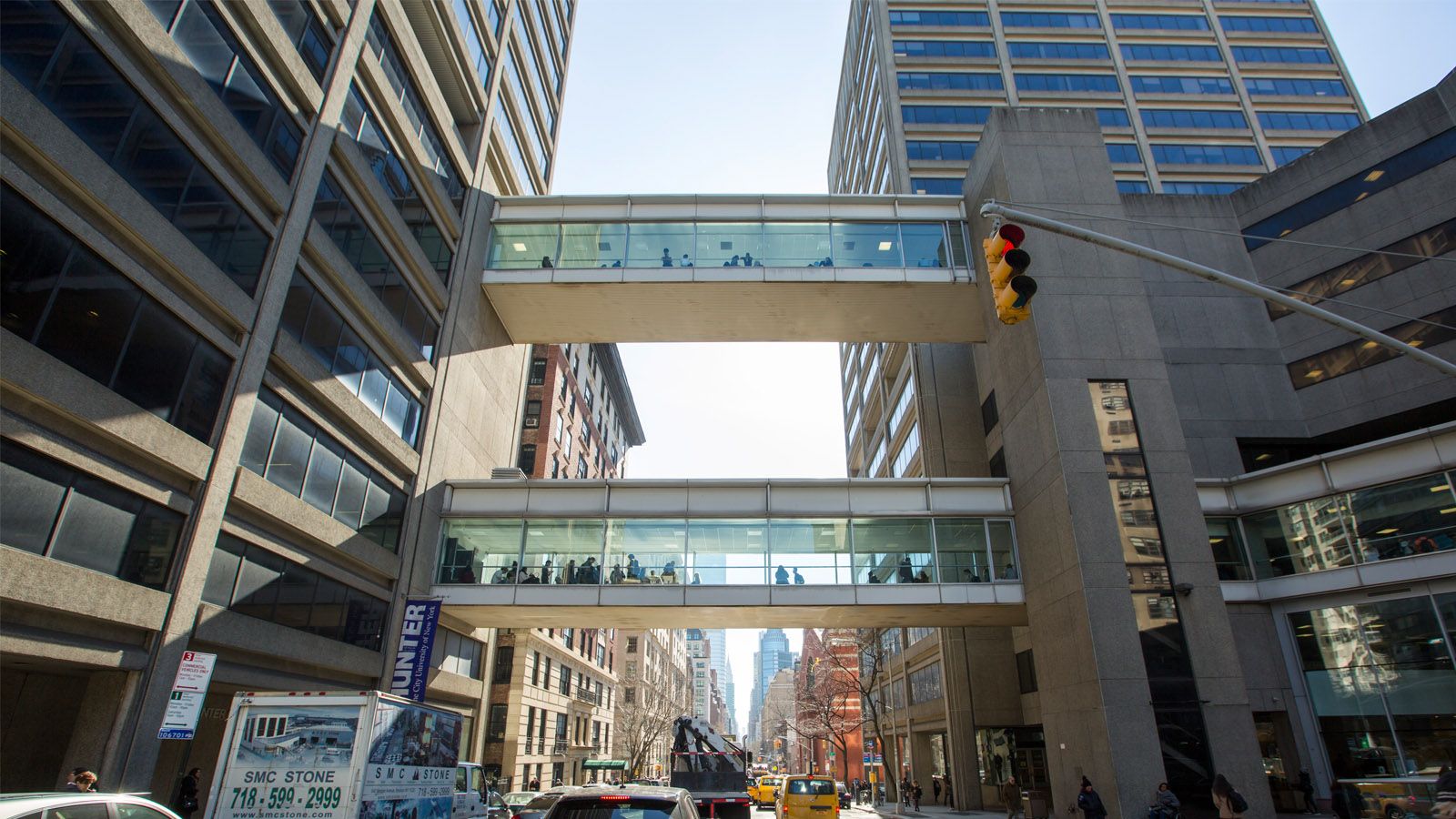Hunter College has served New York City as an engine of social mobility and high-impact scholarship for more than 150 years. What can the college do to make it an even more powerful force for the public good, a true anchor institution?
That was the question with which Hunter College President Nancy Cantor opened a pair of employee town halls on January 27 and 29.
“What does the public need from us?” she asked. “What do we need to do, especially in this day and age, when we need to protect the opportunities for so many of our populations?” she said. “We are not just haphazardly in New York City; we are of New York City.”
Cantor, now in her eighth month at Hunter, discussed the college’s forthcoming strategic plan, the importance of public engagement, and the need for institutional transformation. Interim Provost Manoj Pardasani joined her.
At the January 29 town hall, Cantor reflected on growing up in New York City as the child of social activists, both CUNY graduates, who instilled in her a passion for public service. (Her mother went to Hunter, and her father went to City College.)
“It’s in my DNA,” she said.
Cantor said the college’s strategic plan would focus on three areas:
- Public engagement: Hunter College must produce scholarship and research that addresses pressing challenges and work with the community to solve problems. “It is not just about making the world better, but about creating a two-way street with New York and of New York. And that is going to require transformation of the institution,” Cantor said.
- Institutional transformation: Hunter College must be open to transforming itself to better serve the public good, by breaking down silos between departments and working collaboratively.
- Community building: Hunter College must be where people come together to learn and grow. It must foster a sense of community, especially in times of stress.
Cantor called on employees to help shape the college's future by sharing their thoughts on the strategic plan and encouraging them to share their dreams for Hunter in a one-question survey that still accepts responses.
She also encouraged attendance at Hunter’s “Promoting Civil Discourse & Intellectual Dialogue” series, which features events on topics such as “Talking about Israel and Palestine” and “Trans Rights in Schools and Sports.”
“One of the reasons I'm such a promoter of the arts and public humanities is that it’s one of the ways that people relate across divides,” Cantor said. “What does it mean for us to create a place where people come together and feel safe?”
Colleagues at the town halls offered suggestions on questions such as Hunter’s use of rooms and street space, the need for better internal communications, ways to raise the visibility of departments, and encourage student internship opportunities, among others.
The town halls mirror listening sessions that Cantor and Pardasani have been holding with the faculties and staff of Hunter’s schools and student groups as part of the strategic planning process. Dialogues with alumni, community partners, public officials, and supporters also are part of the process, which will conclude later this spring.


